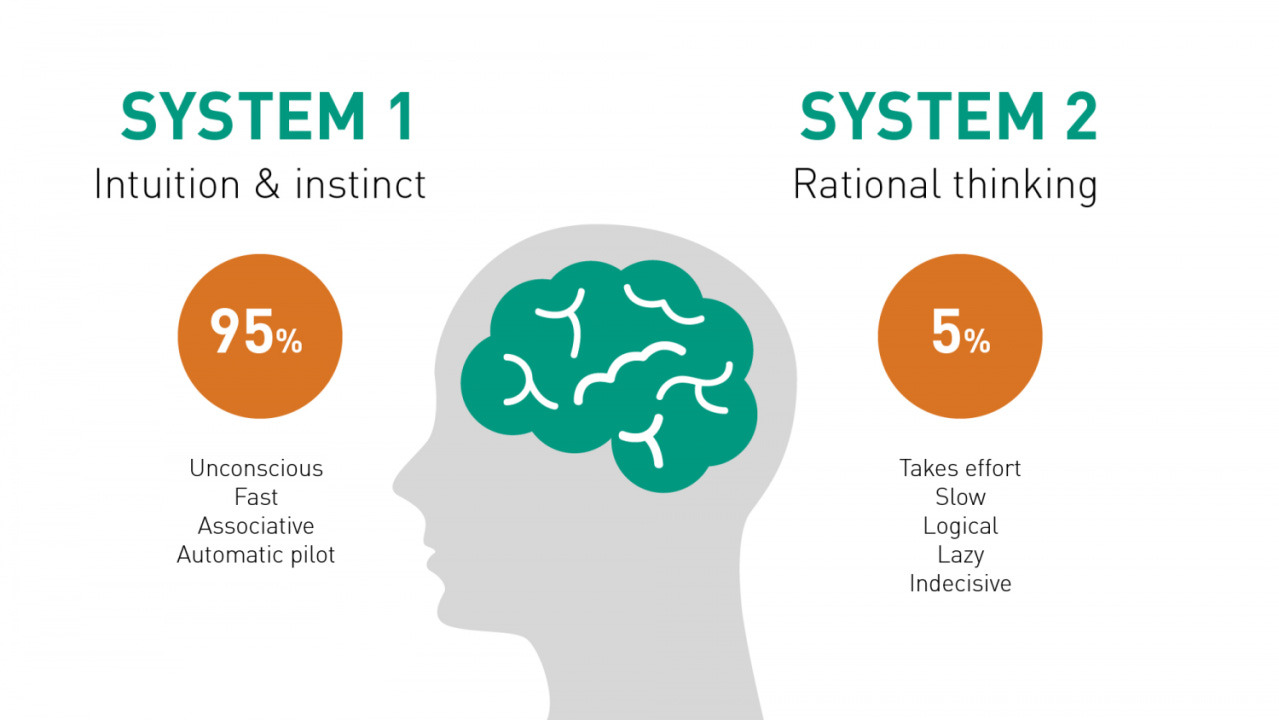The Art of Slow Thinking (And How Fast Thinking Resulted In Over 150 Cognitive Biases)
Let's dive into 4 of them.
Hi turtles,
Did you know that your unconscious (prehistoric) brain makes 95% of your decisions?
It's fast as hell to come to conclusions, but not necessarily accurate ones.
The speed at which our unconscious brain operates doesn't help us make good decisions. Sure, it used to be helpful when we were still fighting for our lives out in the jungle. In a life-or-death situation, the only way to make it out was to act quickly. You wouldn't think about what 25x12 is when you're eye-to-eye with a big bear. Speed was everything.
In the 21st century, we have other problems. We have to bear with dull excel sheets and a brain that's not adapted to the modern, rational life.
All that fast thinking makes us prone to over 150(!) cognitive biases - unconscious and irrational brain processes that distort the way we see the world.
Cognitive biases influence all our decisions, big and small. No one - not even the most brilliant people in the world - is immune to them.
But you can become more aware of them.
See, we also have a ''thinking brain''... but it's only 5% in charge.
The dominant feeling brain will go out of its way to do what it thinks is best for you - regardless of whether it really is. It will look for ways to ''justify'' your feelings. It’ll convince you to spend even more time in a relationship that's bound to fail ''just because you've already been so long in it and it would be a waste of time'', for instance. Or to conform to group pressure because you don't want to feel like you're the odd one out.
And while the feeling brain wants what's best for you, it's not always accurate. Evidently, the feeling brain has a very short-term outlook. Good long-term decisions feel bad in the short term.
So if there’s over 150 such biases, where do we start?
Since I’m big on authenticity, I figured I’d elaborate on four such cognitive biases that prevent us from being honest with ourselves.
The consequences are no joke:
• We assume we’re better than the rest (superiority bias)
• We can’t quit things that don’t serve us (sunk cost bias)
• We fail to think for ourselves in group settings (group bias)
• We limit ourselves to information that confirms our views and neglect counter-evidence (confirmation bias)
Curious? You better be ;) Read all about it on my blog.
To conclude, I’d like to invite you to answer my question for reflection:
Think of the last time you made an important decision. How did you come to that decision? How did that decision turn out for you?
Let me know!
With love,





